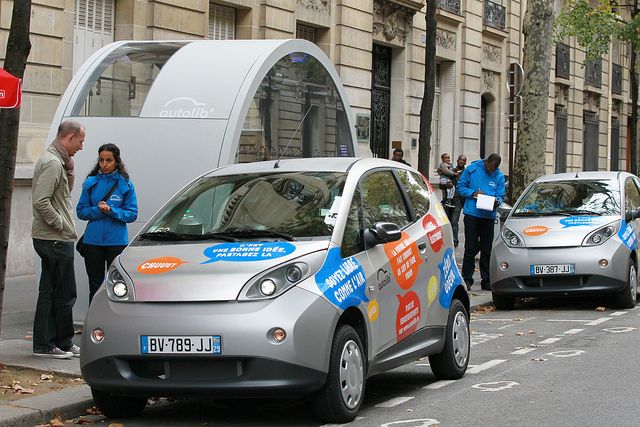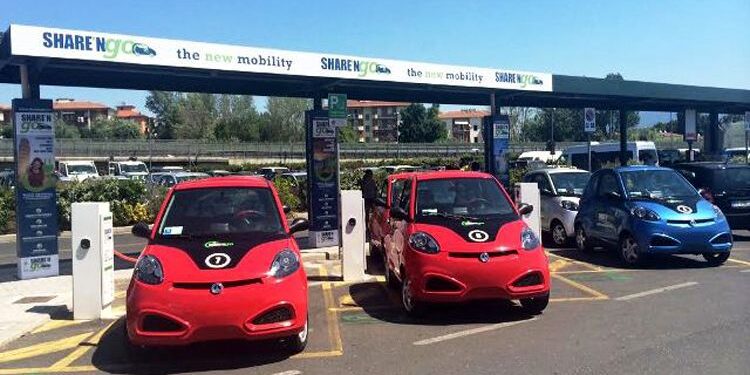The automotive landscape in Europe is undergoing a significant transformation as the continent steadily shifts towards electric vehicles (EVs). This transition is not only reshaping how people commute but also creating lucrative opportunities within the electric car rental sector. As governments bolster supportive policies, environmental consciousness rises, and technological innovations advance, the electric vehicle industry in Europe is poised for remarkable growth.
In this comprehensive analysis, we will delve into the burgeoning electric car rental market in Europe, exploring its potential, benefits, challenges, and future prospects.
The Surge of Electric Vehicles in Europe
Europe has become a hotbed for electric vehicle adoption, driven by a confluence of favorable factors:
A. Supportive Government Policies
European governments are leading the charge in promoting electric mobility through a variety of incentives and regulations. These include:
- Subsidies and Grants: Financial incentives for both consumers and manufacturers make EVs more affordable and attractive.
- Tax Benefits: Reduced taxes and exemptions for EV owners lower the overall cost of ownership.
- Emission Regulations: Stringent emission standards compel automakers to innovate and increase their EV offerings.
- Infrastructure Investment: Governments are investing heavily in charging infrastructure to alleviate range anxiety and support EV usage.
B. Environmental Responsibility
The growing awareness of climate change and environmental degradation has heightened the demand for sustainable transportation solutions. Electric vehicles offer a cleaner alternative to traditional gasoline-powered cars, contributing to:
- Reduced Greenhouse Gas Emissions: EVs produce zero tailpipe emissions, significantly lowering their carbon footprint.
- Improved Air Quality: By minimizing pollutants, EVs enhance urban air quality, benefiting public health.
- Sustainable Energy Integration: EVs can be powered by renewable energy sources, further reducing environmental impact.
C. Technological Advancements
Innovation in the electric vehicle sector has accelerated, making EVs more efficient and accessible. Key technological developments include:
- Battery Technology: Advances in battery capacity and charging speed have extended the range and reduced charging times for EVs.
- Smart Connectivity: Integration with digital platforms allows for enhanced user experiences and seamless vehicle management.
- Autonomous Features: Emerging autonomous driving technologies are being incorporated into EVs, paving the way for smarter transportation.
Electric Car Sales Boom
The electric vehicle market in Europe has witnessed unprecedented growth. In 2022 alone, electric car sales surged to an impressive 2.3 million units, marking a staggering 63% increase from the previous year. This upward trend is expected to continue, with experts forecasting sustained growth as the market matures and EV adoption becomes more mainstream.

Exploring Electric Car Rental Business Opportunities
As electric vehicles gain traction, the car rental industry is poised to capitalize on this momentum. Electric car rentals present a promising business opportunity, driven by increasing consumer interest and supportive market conditions.
A. Rising Demand for Electric Car Rentals
The demand for electric car rentals in Europe is projected to experience significant growth in the coming years, fueled by several factors:
- Consumer Curiosity: More individuals are eager to experience the benefits of electric driving without committing to a purchase.
- Environmental Awareness: Eco-conscious travelers prefer sustainable transportation options that align with their values.
- Technological Enthusiasm: Early adopters and tech-savvy consumers are keen to explore the latest advancements in electric mobility.
B. Profitability Potential
Electric car rentals offer higher profit margins compared to traditional car rentals due to lower operating costs and the ability to command premium pricing. Key profitability drivers include:
- Lower Operating Costs: Electric vehicles have fewer moving parts and require less maintenance than gasoline-powered cars, reducing overall expenses.
- Energy Efficiency: Electricity is generally cheaper than gasoline, lowering the cost per mile driven.
- Premium Pricing: Renters are often willing to pay a premium for the unique experience and environmental benefits offered by EVs.
C. Competitive Advantage
In a crowded car rental market, offering electric vehicles can provide a distinct competitive edge. Benefits include:
- Brand Differentiation: Positioning your rental fleet as eco-friendly sets your business apart from competitors.
- Attracting Niche Markets: Targeting environmentally conscious customers and corporate clients with sustainability goals.
- Positive Brand Image: Demonstrating a commitment to sustainability enhances your company’s reputation and appeal.
Insights from Industry Leaders
Prominent figures in the automotive and environmental sectors have highlighted the immense potential of electric car rentals:
Oliver Zipse, CEO of BMW Group
“Demand for electric car rentals in Europe is predicted to increase drastically in the coming years. This is driven by factors such as supportive government policies, increasing environmental awareness, and technological advances,” stated Zipse at a recent press conference in Munich.
Anna Borg, Executive Director of GreenMobility
“Electric car rental has the potential to generate higher profits than traditional car rental. Electric car operating costs are much lower, and many car rental operators charge premium rates for electric cars,” Borg emphasized.
Frans Timmermans, Executive Vice President of the European Commission
“Offering electric car rentals can improve the image of car rental companies and attract environmentally conscious customers. The business also contributes to reducing greenhouse gas emissions and air pollution, in line with sustainability commitments in Europe,” Timmermans remarked.
Environmental Impact and Consumer Appeal
Electric car rentals not only offer economic benefits but also play a crucial role in environmental sustainability. Renters opting for EVs contribute to:
A. Lower Emissions
Electric vehicles produce zero tailpipe emissions, which significantly reduce the release of greenhouse gases and pollutants compared to traditional vehicles. This shift is vital for meeting Europe’s climate goals and improving urban air quality.
B. Reduced Dependence on Fossil Fuels
By utilizing electricity as a primary energy source, EVs decrease reliance on finite fossil fuel reserves, promoting energy security and sustainability.
C. Enhanced Customer Experience
Electric car renters enjoy a smooth and quiet driving experience, instant torque, and the convenience of charging at home or public stations. These features enhance the overall rental experience, making EVs an attractive option for a wide range of customers.
Challenges in the Electric Car Rental Market
While the prospects are promising, establishing an electric car rental business in Europe comes with its set of challenges:
A. Charging Infrastructure
One of the primary hurdles is the limited availability of charging stations across various European regions. This scarcity can deter potential renters who fear running out of battery power during long trips.
B. High Initial Costs
Electric vehicles are generally more expensive than their gasoline counterparts. For rental companies, the higher upfront investment in purchasing EVs can be a barrier to entry.
C. Consumer Education
Educating customers about the benefits and practicalities of renting electric cars is essential. Many consumers may have concerns about range, charging times, and the overall usability of EVs.
D. Fleet Management and Maintenance
Managing an electric fleet requires specific expertise and resources. Rental companies need to invest in training their staff and establishing maintenance protocols tailored to EVs.
Overcoming the Challenges
To successfully navigate these challenges, electric car rental businesses can adopt several strategies:
A. Investing in Charging Infrastructure
Partnering with charging network providers or investing in on-site charging facilities can mitigate concerns about charging availability. Additionally, providing detailed information about nearby charging stations can enhance customer confidence.
B. Leveraging Government Incentives
Taking advantage of government subsidies, tax breaks, and grants can help offset the high initial costs of acquiring electric vehicles. These incentives can also support the expansion of charging infrastructure.
C. Educating Consumers
Implementing comprehensive marketing campaigns and offering informative resources can help educate consumers about the advantages of electric car rentals. Providing clear instructions on charging procedures and vehicle features can ease potential renters’ apprehensions.
D. Streamlining Fleet Management
Adopting fleet management software designed for electric vehicles can optimize operations and maintenance. Training staff to handle EV-specific issues ensures smooth and efficient service.
Future Outlook and Growth Prospects
The electric car rental market in Europe is set to expand rapidly, driven by several key trends and developments:
A. Expansion of Charging Networks
Continued investment in charging infrastructure will alleviate range anxiety and make electric car rentals more feasible for long-distance travel. Faster charging technologies and widespread availability will enhance the practicality of EV rentals.
B. Advancements in Battery Technology
Improvements in battery capacity and efficiency will extend the range of electric vehicles, making them more attractive to a broader audience. Longer-lasting batteries will also reduce the frequency of charging, increasing the convenience for renters.
C. Increased Variety of Electric Models
As automakers expand their EV portfolios, rental companies will have a wider selection of models to offer. This diversity caters to different customer preferences and needs, from compact cars to luxury SUVs.
D. Collaborative Initiatives
Collaborations between car rental companies, automakers, and charging network providers can foster innovation and streamline the adoption of electric vehicles. Joint ventures and partnerships can accelerate infrastructure development and enhance service offerings.
Case Studies of Successful Electric Car Rental Businesses
Examining successful electric car rental companies provides valuable insights into best practices and effective strategies:
A. GreenMobility
GreenMobility has established itself as a leader in the electric car rental sector by focusing on sustainable urban mobility solutions. Key strategies include:
- Comprehensive Charging Solutions: GreenMobility offers a network of charging stations and facilitates easy access for renters.
- Customer-Centric Services: The company provides user-friendly booking systems and dedicated support to enhance the rental experience.
- Sustainable Fleet Management: GreenMobility prioritizes the acquisition of a diverse range of electric vehicles, ensuring flexibility and choice for customers.
B. EcoRentals Europe
EcoRentals Europe has successfully integrated electric vehicles into its fleet by:
- Strategic Partnerships: Collaborating with charging infrastructure providers to ensure widespread availability of charging points.
- Innovative Pricing Models: Offering competitive pricing and flexible rental options to attract a diverse customer base.
- Robust Marketing Campaigns: Promoting the environmental and economic benefits of electric car rentals through targeted marketing efforts.
Technological Innovations Enhancing Electric Car Rentals

Technological advancements are playing a pivotal role in enhancing the electric car rental experience:
A. Mobile Applications
Modern rental services leverage mobile apps to provide seamless booking, vehicle selection, and real-time tracking. Features include:
- Instant Booking: Allowing customers to reserve electric cars on-the-go.
- Charging Station Locator: Integrating maps and navigation tools to help renters find nearby charging points.
- Remote Monitoring: Enabling customers to check vehicle status and battery levels remotely.
B. Smart Fleet Management
Advanced fleet management systems optimize the utilization and maintenance of electric vehicles by:
- Predictive Maintenance: Using data analytics to anticipate and address maintenance needs before they become critical.
- Dynamic Pricing: Adjusting rental rates based on demand, vehicle availability, and other factors.
- Usage Analytics: Collecting and analyzing data on vehicle usage patterns to improve operational efficiency.
C. Vehicle-to-Grid (V2G) Technology
V2G technology allows electric vehicles to interact with the power grid, providing benefits such as:
- Energy Storage: EVs can store excess energy and supply it back to the grid during peak demand periods.
- Cost Savings: Renters can potentially earn credits or discounts by contributing energy back to the grid.
- Grid Stability: Enhancing the resilience and flexibility of the power grid by leveraging distributed energy resources.
Regulatory and Policy Considerations
Navigating the regulatory landscape is crucial for the success of electric car rental businesses. Key considerations include:
A. Compliance with Emission Standards
Ensuring that the rental fleet meets or exceeds European emission standards is essential for legal compliance and environmental responsibility.
B. Data Privacy and Security
Protecting customer data and ensuring compliance with regulations such as the General Data Protection Regulation (GDPR) is paramount.
C. Incentive Utilization
Maximizing the benefits of available incentives requires a thorough understanding of eligibility criteria and application processes.
Marketing Strategies for Electric Car Rentals
Effective marketing is vital to attract and retain customers in the competitive electric car rental market. Key strategies include:
A. Highlighting Environmental Benefits
Emphasizing the eco-friendly aspects of electric cars can resonate with environmentally conscious consumers.
B. Showcasing Technological Features
Promoting the advanced features and benefits of EVs, such as connectivity, autonomous driving capabilities, and enhanced safety features.
C. Offering Promotional Deals
Attracting customers with introductory offers, discounts, and loyalty programs tailored specifically for electric car rentals.
D. Leveraging Social Media and Digital Marketing
Utilizing platforms like Instagram, Facebook, and Google Ads to reach a wider audience and engage with potential customers through targeted campaigns.
Financial Considerations and Investment Strategies
Launching and sustaining an electric car rental business requires careful financial planning and strategic investments:
A. Initial Capital Investment
Allocating funds for purchasing electric vehicles, setting up charging infrastructure, and developing necessary technology platforms.
B. Operational Costs
Managing ongoing expenses such as maintenance, insurance, electricity for charging, and staff training.
C. Revenue Streams
Diversifying revenue sources through various rental models, including short-term rentals, long-term leases, and corporate partnerships.
D. Funding and Financing Options
Exploring funding opportunities through loans, venture capital, government grants, and partnerships to support business growth and expansion.
Sustainability and Corporate Social Responsibility (CSR)
Integrating sustainability and CSR into the business model enhances brand reputation and aligns with consumer values:
A. Sustainable Practices
Implementing eco-friendly operational practices, such as using renewable energy for charging stations and minimizing waste.
B. Community Engagement
Participating in local environmental initiatives and supporting community projects to foster positive relationships and brand loyalty.
C. Transparency and Accountability
Maintaining transparent communication about sustainability efforts and performance metrics to build trust with customers and stakeholders.
Customer Experience and Satisfaction
Delivering an exceptional customer experience is crucial for the success of an electric car rental business:
A. User-Friendly Booking Process
Ensuring that the reservation system is intuitive, efficient, and accessible across multiple platforms.
B. High-Quality Customer Support
Providing responsive and knowledgeable customer service to address inquiries, resolve issues, and enhance overall satisfaction.
C. Vehicle Quality and Availability
Maintaining a well-maintained fleet of electric vehicles that are readily available to meet customer demand and preferences.
D. Personalized Services
Offering tailored services, such as customized rental packages, flexible pick-up and drop-off options, and value-added amenities to meet diverse customer needs.
Competitive Landscape and Market Positioning
Understanding the competitive landscape is essential for positioning your electric car rental business effectively:
A. Identifying Key Competitors
Analyzing the strengths and weaknesses of existing players in the electric car rental market to identify opportunities and threats.
B. Differentiation Strategies
Developing unique value propositions, such as exclusive partnerships, superior customer service, or innovative technology integrations to stand out in the market.
C. Market Segmentation
Targeting specific customer segments, such as business travelers, tourists, or eco-conscious individuals, to tailor marketing efforts and service offerings accordingly.
Technological Integration and Future Innovations
Staying ahead in the electric car rental market requires continuous technological integration and innovation:
A. Autonomous Vehicles
Incorporating autonomous driving features into the rental fleet to offer cutting-edge mobility solutions and enhance the customer experience.
B. Blockchain for Transparency
Utilizing blockchain technology to ensure transparency in transactions, enhance security, and streamline fleet management processes.
C. Artificial Intelligence (AI) and Machine Learning
Leveraging AI and machine learning to optimize operations, predict maintenance needs, and personalize customer interactions.
Strategic Partnerships and Collaborations
Forming strategic partnerships can accelerate growth and enhance service offerings:
A. Collaborations with Automakers
Partnering with electric vehicle manufacturers to secure favorable terms, access exclusive models, and stay updated on the latest advancements.
B. Alliances with Charging Network Providers
Establishing alliances with charging infrastructure providers to ensure seamless access to charging stations and enhance the convenience for renters.
C. Partnerships with Travel and Tourism Agencies
Collaborating with travel and tourism agencies to offer bundled packages and reach a broader customer base.
Case for Sustainable Mobility in Europe
Europe’s commitment to sustainable mobility is a driving force behind the electric car rental boom. Key initiatives supporting this shift include:
A. European Green Deal
The European Green Deal aims to make Europe climate-neutral by 2050, with a significant focus on sustainable transportation.
B. Urban Mobility Plans
Cities across Europe are implementing urban mobility plans that prioritize electric vehicles, cycling, and public transportation to reduce congestion and pollution.
C. Investment in Research and Development
Substantial investments in R&D are fostering innovation in electric vehicle technology, battery storage, and smart mobility solutions.
Potential Revenue Models for Electric Car Rentals
Exploring diverse revenue models can enhance the financial stability and profitability of an electric car rental business:
A. Pay-Per-Use Model
Charging customers based on the duration and distance of their rental, providing flexibility and catering to various needs.
B. Subscription Services
Offering subscription-based plans that allow customers to access electric vehicles for a fixed monthly fee, promoting customer loyalty and recurring revenue.
C. Corporate Leasing
Providing tailored leasing options for businesses looking to incorporate electric vehicles into their corporate fleets, aligning with their sustainability goals.
D. Value-Added Services
Generating additional revenue through services such as insurance packages, GPS navigation, and premium features.
Risk Management and Mitigation Strategies
Identifying and mitigating risks is crucial for the sustainability of an electric car rental business:
A. Market Fluctuations
Staying adaptable to changes in market demand, economic conditions, and consumer preferences to ensure resilience.
B. Technological Obsolescence
Keeping abreast of technological advancements and regularly updating the fleet to prevent obsolescence and maintain competitiveness.
C. Regulatory Changes
Monitoring and adapting to changes in regulations and policies to remain compliant and leverage new opportunities.
D. Financial Risks
Implementing robust financial planning and management practices to safeguard against unforeseen expenses and ensure long-term viability.
Conclusion
The electric car rental market in Europe presents a compelling opportunity for entrepreneurs and established car rental companies alike. Driven by supportive government policies, increasing environmental awareness, and rapid technological advancements, the demand for electric vehicles is set to soar. By addressing the challenges related to charging infrastructure, initial costs, and consumer education, electric car rental businesses can position themselves for sustained growth and profitability.
Moreover, embracing sustainability and leveraging innovative technologies will not only enhance customer experience but also contribute to a greener, more sustainable future.
Embracing the shift to electric car rentals is not just a business decision; it is a commitment to shaping a sustainable future.












